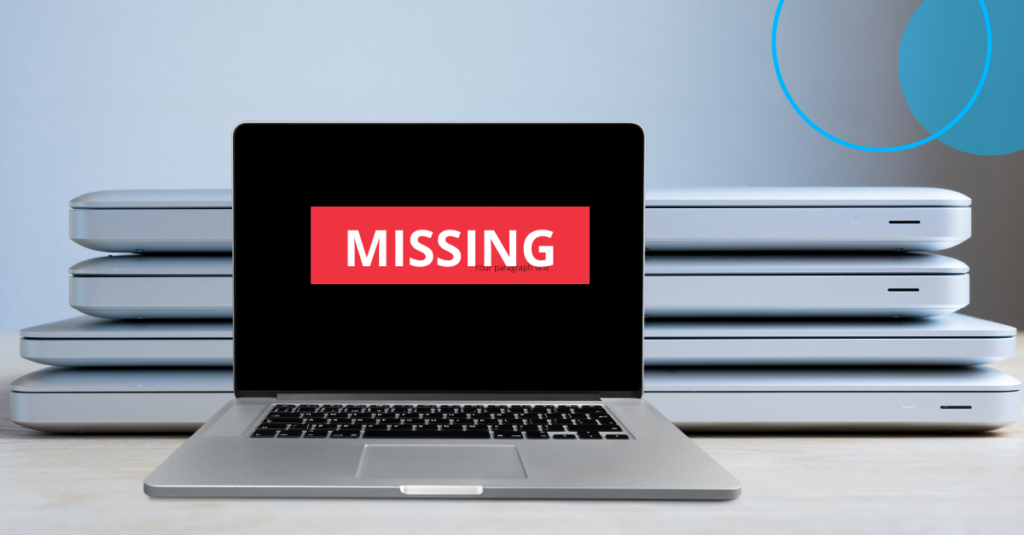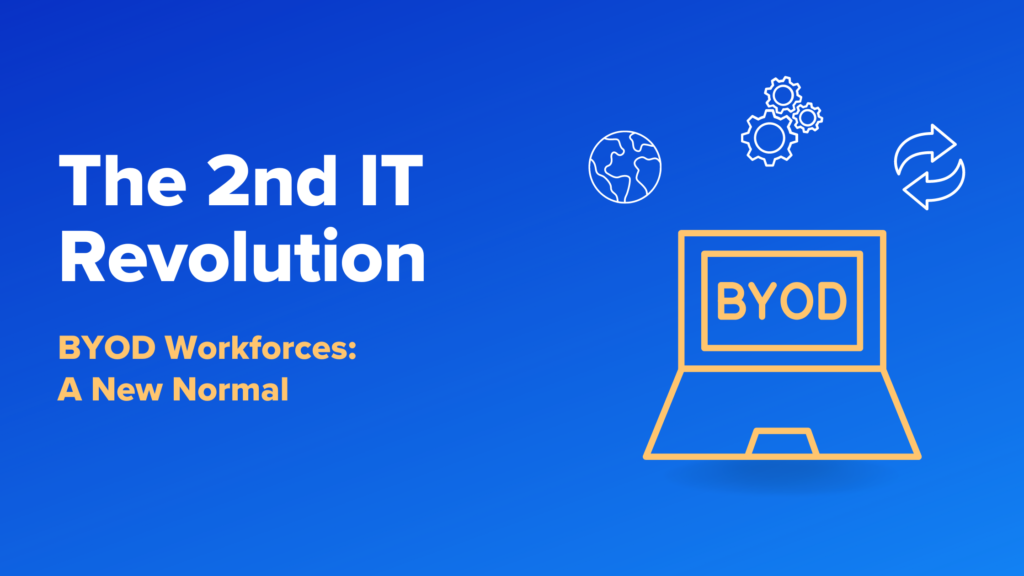The Cost of Lost Hardware: How BPOs Can Save Millions on Shipping Devices

You know the drill. You hire a new remote employee that will provide overseas customer services for your client, you ship them their device, onboard them, invest in training – only to find out within a few months that they’ve moved on to another BPO. Now you need to find a new employee, and there’s a good chance you can kiss that laptop goodbye.
BPOs today are losing millions of dollars in lost hardware, since employees simply aren’t shipping them back. Your profitability is being eaten up. But it doesn’t have to be that way. A Secure Enclave can put this money back in their pockets, and you won’t even have to see another shipping company again in your life (at least, for work purposes).
Here’s how it works.
Why Outsourcing Companies Ship Devices to Remote Employees
Companies that provide outsourced managed services, like IT, customer care, support, or finance (aka BPOs), often manage a global team of employees. To allow these employees to perform their jobs, they ship them endpoint devices (PCs, laptops).
By providing company-issued devices, BPOs can ensure that all employees have access to the necessary tools, applications, security patches and access permissions, which are pre-configured on devices before shipping them out. This helps in maintaining consistency in performance, efficiency and security across the organization.
Understanding the BPO Industry
However, shipping devices might not be the best strategy for many of these companies that provide managed services. To understand why, let’s understand what characterizes this industry.
- High Turnover Rates – One of the defining features of the BPO industry is its high turnover rates. Employees may stay for only a few months before transitioning to a new company or role. In extreme cases, some employees don’t even start their actual role before transitioning to a new company. This turnover can be attributed to various factors, such as the ability to receive a higher salary at a new employer.
- High Demand for BPO Employees – One of the reasons for high turnover is the high demand for BPO employees. This demand stems from the need for outsourcing various business processes such as customer service, technical support, data entry and more. As businesses seek to streamline operations and reduce costs, they often turn to BPO companies to handle these non-core functions, driving the need for skilled employees.
- Transferable Skills – The skills gained in the BPO industry are highly transferable between companies. Employees develop strong communication, problem-solving and multitasking abilities, along with industry-specific knowledge depending on the type of processes they handle. This allows them to easily transition to another BPO.
- Abundance of BPO Companies – The BPO landscape is populated by a multitude of companies of varying sizes, ranging from global giants to smaller, niche providers. This diversity offers options for employees, allowing them to choose companies that align with their specific needs and preferences.
Why BPOs are Losing Their Hardware
Configuring, updating and shipping devices to a large number of employees requires IT teams to be dynamic and fast-paced. At the same time, it requires them to invest significant budget resources in new devices. While BPOs ship out devices to new employees when they join, they do not always get those devices back. According to some estimations, businesses can lose up to 30% of their shipped hardware.
Why is this happening?
When employees leave their positions so quickly, they sometimes fail to return company-issued laptops or other hardware. This could be due to oversight, lack of awareness about return procedures, or intentional disregard for company policies.
Even when employees do ship back laptops upon leaving their roles, there’s a possibility that the devices are unworthy of further use. This could be due to damage incurred during transit, poor packaging, or employee misuse. This renders the hardware inoperable or requiring extensive repairs before it can be redeployed.
In some cases, delays in shipping laptops to employees can lead to a “no-show” situation, where the employee has already accepted another job offer by the time the hardware arrives. This can happen when there are logistical challenges or bureaucratic delays in the procurement and shipping process, causing frustration and inconvenience for both the employer and the employee. In such cases, a frustrated employee may not bother to ship back the device.
Millions of Dollars Lost in Transit
What’s the cost of this lost hardware for BPOs? Let’s look at the numbers.
For a 500-agent organization:
- Starting costs:
- 500 machines for employees: $800 (on average) per device totalling $400,000
- With 100% turnover rates, BPOs need double the number of devices so they can ship devices and onboard new employees while previous employees are being offboarded. This brings starting costs to: $800,000
- Device loss costs:
- At a 30% loss rate, i.e 30% of employees not shipping back devices, the cost of lost devices is $266,666.
- This calculation does not even take into account the shipping costs, which could amount to hundreds of dollars per device. This means companies can be losing up to twice that amount.
- In addition, it does not include IT time spent reimaging and shipping devices. If BPOs used a Secure BYOD solution, the time spent could be reduced to minutes, rather than hours and days.
- For larger BPOs, the cost is even higher. But even for a small BPO, losing hundreds of thousands or tens of thousands of dollars is quite a financial blow.
Stop Leaving Money on the Table
As of now, global managed services companies have accepted this reality as the cost of doing business. When planning financially and determining their growth traction and profitability, they take into account hundreds of thousands of dollars (and upwards) as part of their expenses. However, this is not sustainable in the long-run.
BPOs have several options to address the challenges associated with hardware loss and management:
- Implement Asset Management Systems – BPOs can invest in robust asset management systems to track and monitor hardware usage more effectively. These systems can help keep track of inventory, monitor device location and ensure timely returns upon employee separation. However, this is another expense to be taken into consideration as well as an additional team member to monitor and manage this.
- Encourage Responsible Behavior – BPOs can foster a culture of accountability and responsibility among employees regarding the handling and return of company-issued hardware. This can be achieved through training programs, clear policies and regular reminders about the importance of safeguarding company assets. However, this requires time and effort, which might not be applicable or a reasonable expectation with the industry’s high turnover rates.
- Transition to BYOD – Instead of shipping devices, work with your employees’ existing devices. Provide a stipend for purchasing or reimbursement for the use and find a solution that can easily onboard them to their work applications and offboard them when they leave. BYOD can offer cost savings and flexibility and save the business hundreds of thousands, and even millions, of dollars. When choosing BYOD, it’s important to find a solution that can support security and compliance requirements.
Introducing: The Secure Enclave
The Secure Enclave is a groundbreaking approach for IT teams, which is especially relevant for BPOs and other outsourcing and managed services organizations. This innovative technology facilitates a secure and isolated environment on any unmanaged or BYOD/BYO-PC computer, As a result, it allows easily setting up remote work without the inherent complexities and financial implications of shipping devices.
The Secure Enclave operates by establishing a controlled environment directly on the user’s device. Within this enclave, all company data is encrypted and access is managed. Work applications are executed locally and operations are distinctly demarcated by a Blue Border™. This ensures that business activities are securely isolated from any personal usage on the same device. This separation not only enhances security but also preserves the performance and usability of the device for personal tasks.
The best part is that the Secure Enclave can be easily installed on any existing unmanaged or BYOD PC or Mac and it starts working immediately, so employees can start working without any shipping delays. This agility will help you rapidly onboard and scale according to your client demands, giving you a competitive advantage and making your IT teams very happy they don’t have to set up and ship another device.
The Secure Enclave’s flexibility does not come at the cost of security or meeting compliance. By isolating the work environment from the personal space, the Secure Enclave significantly mitigates the risk of data breaches and cyber threats. This approach ensures that, even in the event of a device being compromised, the integrity and confidentiality of company data remain intact. And because it was built to comply with the strictest of standards (HIPAA, PCI, SOC 2, GDPR and more) you can have peace of mind that your client data is protected and secure.
Learn more about how Venn’s Secure Enclave eliminates the need for BPOs to invest in expensive hardware or software infrastructure. Let’s talk.

Scott Lavery
SVP Marketing
More Blogs


